Google's Nexus One takes on Droid as Apple's iPhone App Store grows
At the same time, Apple's month over month App Store download growth over the holidays greatly outpaced the growth of Google's Android Market by a factor of 2.5 this year, refuting the idea that Google's last flagship phone, the Verizon/Motorola Droid, had any real impact on the iPhone during the key holiday season, or that it even helped Google to catch up to Apple.
Apple's phenomenal growth sets up limited prospects for Google's next attempt to deliver the new Nexus One as an iPhone alternative in partnership with HTC and T-Mobile during the post-holiday season, given that the Droid has already consumed most of Android's potential market opportunity.
G-Phone 2: This time it's personal
Rumors of a Google Phone first circulated in late 2007 before the company formally announced that its new Android would be a broadly-licensed platform like Windows Mobile rather than a tightly integrated product like the iPhone.
Two years later, the concept of a new Android phone built "specifically for Google" to market under its own name was again promoted by Michael Arrington of TechCrunch, who described the rumored new Nexus One model as a "pure Google-branded phone."
Unlike existing offerings from HTC (like the G1, MyTouch, and Verizon Droid Eris) or Motorola (the Verizon Droid), Arrington said "every last piece" of the device would be dictated by Google, similar to how Apple exerts total control over all the details and user experience of the iPhone, iPod touch, and iTunes.
An Android phone without the Android problems
"[There will be] no splintering of the Android OS that makes some applications unusable," Arrington wrote. "Like the iPhone for Apple, this phone will be Google’s pure vision of what a phone should be."
As of a month and a half ago, Arrington said that he doubted reports that the new phone would be built by HTC, the company that historically has made nearly all Windows Mobile phones and most of the devices running Android.
Instead, Arrington claimed "fairly good information that suggests" that Google was building the new phone itself using LG or Samsung, an indication that the new device was really a unique iPhone-like product rather than just rebadged model.
Another Android developer phone
However, the latest information shows that the new device is really just an extension and broadening of Google's development phone program, which allows users to buy an unlocked Android device and use it on T-Mobile.
Rather than just being limited to developers, Google now plans to market the phone under its own name, selling it over the web directly with or without a subsidizing contract, just like it has always sold its Android developer model.
However, there is no indication the phone's hardware is at all dictated or managed by Google. Instead, it's just another new phone from HTC, which has always churned out several new models every year.
Like HTC's previous Windows Mobile and Android phones, the Nexus One is still limited to a relatively small amount of system RAM and internal storage RAM, killing any prospects for the new model to take over the iPhone/iPod touch in terms of sophisticated apps, and in particular games.
Rather than mounting any real competition to the iPhone 3GS, the Nexus One will immediately make HTC's existing Android phones look long in the tooth, including the HTC Droid Eris Verizon is currently marketing alongside the Motorola Droid.
The Droid Killer
The Nexus One is essentially HTC's answer to the Motorola Droid. Both sport a high resolution screen and similar specifications that lead the pack of Android offerings. Both also reveal Google's intent to play its licensees off of each other.
For the first two generations of Android phones, Google worked with HTC, the vendor most interested in and most capable of bringing an Android phone to market. HTC was well positioned because it already had completed Windows Mobile phone designs that could be quickly adapted to run Android.
This fall however, Google appeared to abandon HTC entirely as it devoted exclusive efforts to release Android 2.0 in tandem with Motorola and Verizon on the Droid. The Droid was Motorola's internal attempt to revitalize its lagging phone handset business, and was originally designed to run Windows Mobile before being conscripted to run Android.
Google did not immediately officially release the Droid's Android 2.0 for other Android models, and instead left other licensees in the dark to the point where HTC and Sony Ericsson have announced plans to continue to ship future phones running earlier versions of the Android operations system.
Now, Google is returning to HTC to release Android 2.1 on the Nexus One, leaving the Droid to catch up in the background and Sony Ericsson still on track to debut its new phone later in 2010 running Android 1.6. Verizon Droid or Droid Eris users can't just switch to the slim new Nexus One because it only works on T-Mobile's GSM/UMTS network. Verizon also charges a steep $350 termination fee on its Android smartphones to prevent any desertion.
Snowballing vs cannibalization
This ensures that Android fans and early adopters simply can't regularly upgrade as iPhone users could, either in hardware with annual device releases or in software with annual new reference releases and the regular free updates in between. What Android updates are available to end users are a combination of what the vendor and mobile carrier choose to support and deliver, much as was the case with Windows Mobile.
While Apple snowballed interest in its iPhone platform and grew rapidly by word of mouth, Android appears to be cannibalizing itself with competition between vendors not just for potentially incompatible hardware innovations (such as different screen resolutions) but also in a confusing mix of Android operating system versions.
This is splintering the development community and preventing the snowballing growth seen in the cohesive iPhone platform. Android's fractionalization as a platform prevents it from attaining the interest of key developers, and therefore impedes the critical mass needed to attract users and other commercial developers, resulting in a hobbyist community.
iPhone App Store growing 2.5 times as fast as Android Market
The result of this is that Apple can claim, not just a much larger share in unit sales and software downloads, but also much greater growth in App Store interest in December over the previous month than Google's Android Market can.
According to mobile analytics firm Flurry, Apple's App Store download growth increased by more than 50% this month over November, while Google's much smaller Android Market grew by just 20% over the same period, despite the massive advertising blitz Verizon contributed during the holidays.
With a much smaller unit installed base and a library size of around 15,000 apps compared to Apple's 100,000, Google should find it easier to increase its percentage of growth faster than Apple, but that simply isn't happening. Google was left behind in the busiest holiday season of the year.
Google will now have to struggle through 2010 as Apple launches its slate product and the expected 4G iPhone and iPhone 4.0 software this summer.
Rather than rolling out its own incremental upgrades to Android, Google will be juggling the interests of HTC, Motorola, and new offerings planned by Sony Ericsson, LG, and Samsung, while attempting to play the role of both the independent platform licensing agent and a direct competitor, an impossibly difficult task that tripped up Microsoft as it attempted to run PlaysForSure and directly sell the Zune at the same time.
Rather than gaining any ground against the iPod, Microsoft only killed its existing broadly licensed platform and turned the Zune into a tiny property of little consequence.
 Prince McLean
Prince McLean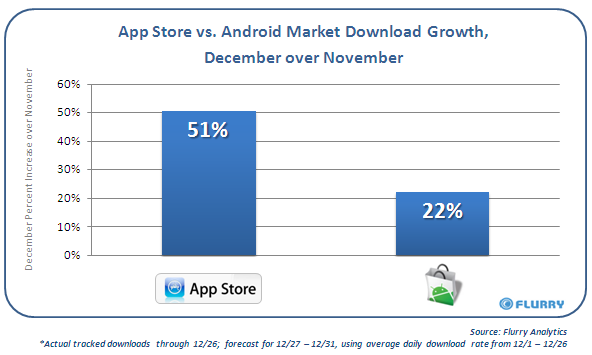
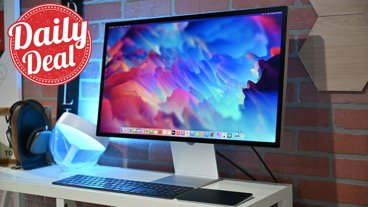
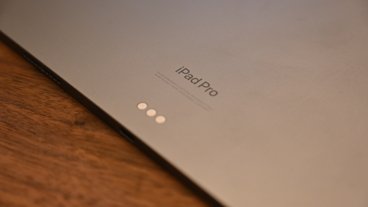









 Mike Wuerthele
Mike Wuerthele
 William Gallagher
William Gallagher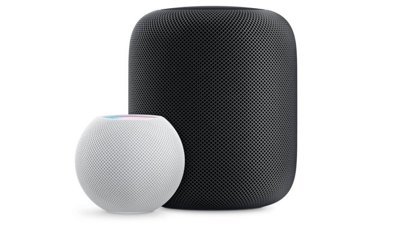

 Stephen Silver
Stephen Silver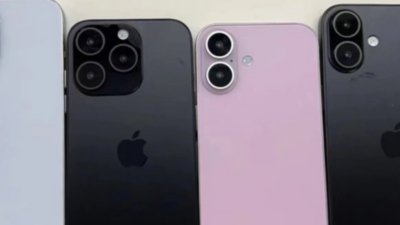
 Charles Martin
Charles Martin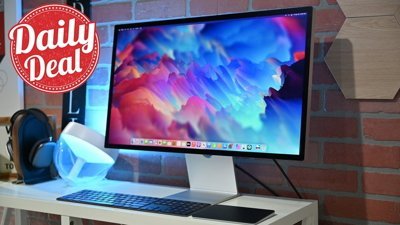
 Christine McKee
Christine McKee
 Malcolm Owen
Malcolm Owen
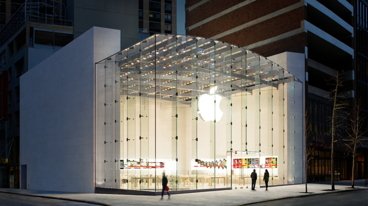
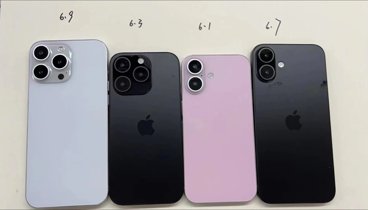
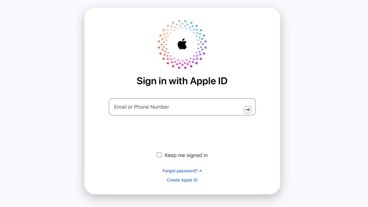






128 Comments
I should say, Android Developer Phones were never marketed towards consumers, only developers. And even the task of requiring that a person be a developer in order to purchase the phone (simple and free), is enough to turn 99% of people off from a developer phone.
No, the real difference in a "Google phone" is if Google decides to put its own marketing muscle behind the phone, unlike other Android phones which have always been pushed by carriers. It's different from the Motorola Droid in that people think of the following companies before Google: Verizon and Motorola. Heck, for some people, they think that the carrier actually MAKES the hardware (yes, people are that unaware of things), since the Google logo is only on the back in a faint font compared to the white on the front of the Droid.
However, with no other branding besides Google itself, it gives them full ownership of it's success and/or failure with no one else to blame. And for those that argue that Google isn't making the phone, HTC is, I want to remind you that Apple doesn't manufacture the iPhone either, it's produced by Foxconn. People don't remember hardware manufacturers, they remember the brands they are attached to!
I think the Google phone will be more competition for Droid and other Android platform phones than the Apple iPhone and App store. So no matter what people say about the "openness" of the Android platform and the multitude of devices that will run it, the more the merrier as far as Apple is concerned. It just helps divide the market more easily for Apple to keep conquering.
Apple sorta gets to relive the argument for "those who care about software also do the hardware" versus only doing software. The difference being now Apple doesn't have any execs screwing up Steve Jobs' vision or stopping Apple from beingApple.
... People don't remember hardware manufacturers, they remember the brands they are attached to!
I agree strongly with this move by Google to brand the phone alone - however I would modify your thought by saying "they remember the brands that keep their promise they are attached to!" Apple's products are not just an Apple logo, but the look and feel and everything about the products match Apple's DNA. From what I've seen of the Nexus One, it doesn't LOOK like something that represents Google in any special way. From a brand perspective I think of Google as playful, geeky, colorful building blocks on top of a clean-simple-white platform. The Nexus One LOOKS nothing like any of that.
Apple's phenomenal growth sets up limited prospects for Google's next attempt to deliver the new Nexus One as an iPhone alternative in partnership with HTC and T-Mobile during the post-holiday season, given that the Droid has already consumed most of Android's potential market opportunity.
I think this conclusion is an overstatement. The potential market opportunity for Android, as well as other smartphone/application phone makers, still includes dumb-phone owners who will upgrade.
I'll be buying a Nexus One if I can buy it unlocked and use it on T-mo. Sorry, Steve. You need to end exclusivity... and fast.
I'll be buying a Nexus One if I can buy it unlocked and use it on T-mo. Sorry, Steve. You need to end exclusivity... and fast.
If you thought Att's 3G coverage sucked, wait until you use T-Mobile.
That being said, I'd still use T-Mobile.